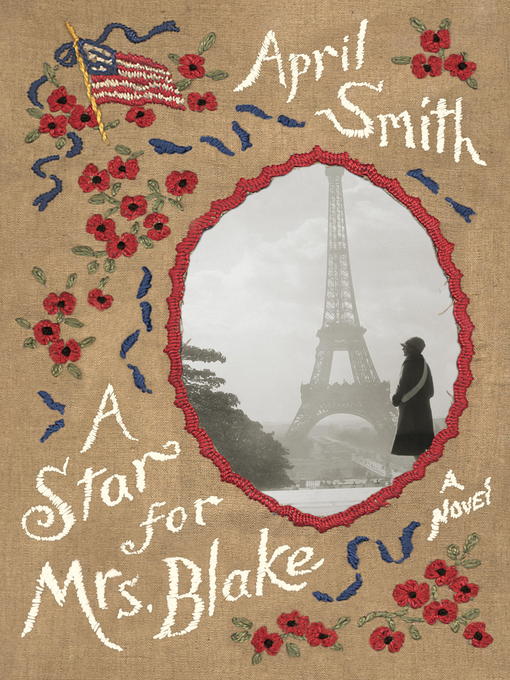
A Star for Mrs. Blake
A Novel
- اطلاعات
- نقد و بررسی
- دیدگاه کاربران
نقد و بررسی

October 14, 2013
Smith’s sixth novel, a departure from her Ana Grey thrillers, presents the touching story, set in the 1930s, of Gold Star Mothers—the mothers of fallen U.S. service members—visiting their sons’ graves in France. Cora Blake lives in Maine, where she is raising her three nieces after her sister’s death. Struggling from day to day to survive the Depression, Cora learns of a chance, courtesy of the U.S. government, to see the last resting place of her son, killed in WWII. She ends up being the glue that holds together “Party A,” which includes, along with their escorts Second Lt. Thomas Hammond and nurse Lily Barnett, a Boston socialite, an Irish maid, and, temporarily, an African-American woman. The trip’s organizers soon correct this “mistake,” but the woman’s white replacement proves mentally unstable. During the trip, Cora meets down-on-his luck reporter Griffin Reed, who was badly disfigured while covering the war, and whose investigative skills bring her a gift beyond her hopes. Smith captures the mothers’ interactions in beautiful detail and delves into the government’s not-entirely-altruistic reasons for sponsoring the trip. Several plot threads, however, are unresolved, leaving the reader wanting more at the end of this captivating read. Agent: Molly Friedrich, Friedrich Literary Agency.

December 15, 2013
During the early 1930s, the U.S. government arranged for grieving "Gold Star Mothers" to visit the French burial sites of their sons killed during World War I. This historical fiction by mystery author Smith (White Shotgun, 2011, etc.) concerns a woman named Cora Blake and her travel companions. Plucky, no-nonsense Cora is a librarian from Deer Isle, Maine, and a single mother of a son, when she gets the government invitation in 1931. She becomes the member coordinator and organizes the banally diverse group of women assigned to travel together: Jewish Minnie Siebert, who must defy her husband to travel from their farm in Bangor; Irish Catholic Boston housemaid Katie McDonald, who lost two sons in the war; and well-to-do society matriarch Mrs. Bobbie Olsen, who, like Cora, has a secret she's not telling. The fifth member of the party, Wilhelmina Russell, does not respond to Cora's letters, but Mrs. Russell does show up to travel on the train from Boston to New York. Only this is Selma Russell, a black seamstress, stereotypically large and comic--discomforting whiffs of race and class snobbery filter throughout the novel. A snafu has mixed up the two Mrs. Russells, and Wilhelmina, a deeply disturbed middle-class housewife recently released from a mental hospital for the journey, has ended up in Harlem. Assigned to chaperone the women, 2nd Lt. Thomas Hammond fixes the mix-up, with the help of nurse Lily Barnett, by resegregating the women before they board the ship for Europe. By the time they reach Europe, Cora and Bobbie have bonded, while romance between Thomas and Lily is palely flickering. In Paris, Cora meets journalist Griffin Reed. Badly wounded and disfigured while covering the war, he sees the possibility of a story in the women's journey. Throw in Reed's hedonistic lover and a nasty senior officer who resents Thomas' privilege, and the trip goes more than slightly awry. While the line-by-line writing is engaging, this take on historic events is made shallow by broad brush strokes and lots of heartstring pulling.
COPYRIGHT(2013) Kirkus Reviews, ALL RIGHTS RESERVED.

November 1, 2013
After losing her son in World War I, small-town librarian Cora Blake is surprised over a decade later to receive a letter from the U.S. government inviting her to go to Europe to visit his grave as part of a "Gold Star Mother" tour. Looking forward to the adventure, Cora also hopes that she and the other mothers will be able to find the closure that has eluded them for so long. A chance encounter with an embittered journalist gives her the opportunity to tell her story to the world and leads her to discover some unexpected truths about the long-term legacy of the war. VERDICT What initially feels like a straightforward and heartwarming road trip novel becomes more complicated as the women draw nearer to their destination and squabbles over class and personality differences give way to increasing criticism of the government and military bureaucracy. Though some later plot developments are a bit far-fetched, Smith, in a change of pace from her "FBI Special Agent Ana Grey" thrillers (Good Morning, Killer), artfully maintains a generally warm tone while also allowing her characters to ask hard questions about the war and its consequences.
Copyright 2013 Library Journal, LLC Used with permission.

Starred review from November 15, 2013
Smith, author of five thrillers starring FBI Special Agent Ana Grey, here offers a heartfelt glimpse into a little-known episode in U.S. history, the journey taken by mothers of U.S. soldiers fallen in WWI to visit their sons' graves in Europe. Smith focuses on five mothers whose sons were buried at the Meuse-Argonne American Cemetery in France. Their unofficial leader is Cora Blake, a single mother from Maine. She's joined by an Irish maid, the wife of an immigrant Russian chicken farmer, a woman who's been in and out of mental institutions since her son was killed, and a wealthy Boston socialite. Smith deftly spotlights moments along their sojourn, from the giggling fits brought on by the French delicacies they are served on board ship to the tears they shed when confronted by the stark white lines of marble stones where their sons' remains now lie. Side plots revolve around an American journalist, badly disfigured in the war, who befriends Cora and publishes her story in a French newspaper, and the practice of racially segregating these mothers, even in their grief. Smith's foray into historical fiction is captivating and enlightening.(Reprinted with permission of Booklist, copyright 2013, American Library Association.)




دیدگاه کاربران